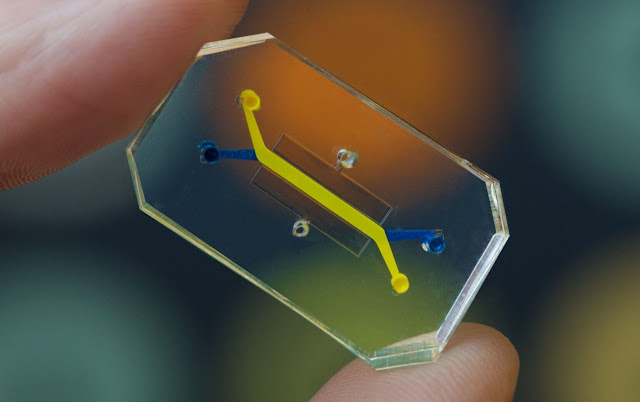The Promise of Organ-on-a-Chip Technology for Personalized Medicine
 |
| Organ-on-a-Chip |
Organ-on-a-chip technology is a rapidly developing field
that has the potential to revolutionize the way we develop and deliver medical
treatments. By recreating the complex environment of human organs in a small,
lab-grown device, Biomimetic Chip models can be used to study disease, test new
drugs, and develop personalized treatment plans. One of the most promising
applications of Biomimetic Chip technology is in the field of personalized
medicine. Personalized medicine is an approach to healthcare that tailors
treatment to the individual patient's genetic makeup, lifestyle, and medical
history. By using Biomimetic Chip models to simulate how a patient's individual
cells and tissues will respond to different drugs, doctors can identify the
most effective treatment options for each patient.
For example, organ-on-a-chip models have been used to study
how different drugs affect the growth of cancer cells. These models have shown
that some drugs are more effective at killing cancer cells in certain patients
than in others. This information can be used to develop personalized treatment
plans that are more likely to be successful for each individual patient. In
addition to drug testing, Biomimetic Chip models can also be used to study the
effects of environmental factors, such as pollution and toxins, on human
health. These models can be used to identify new environmental hazards and to
develop ways to protect people from these hazards.
Organ-on-a-chip
technology is still in its early stages of development, but it has the
potential to revolutionize the way we treat disease. By providing a more
accurate and personalized approach to healthcare, Biomimetic Chip technology
has the potential to improve the lives of millions of people around the world.
Here are some of the benefits of organ-on-a-chip technology
for personalized medicine:
- More
accurate drug testing: Its models can be used to test drugs in a more
realistic environment than traditional animal models. This can lead to
more accurate results and a better understanding of how drugs will work in
humans.
- Personalized
treatment plans: Its models can be used to tailor treatment plans to
the individual patient's genetic makeup, lifestyle, and medical history.
This can lead to more effective and safer treatments.
- Earlier
diagnosis and treatment: Its models can be used to identify early
signs of disease. This can lead to earlier diagnosis and treatment, which
can improve the chances of a successful outcome.
- Reduced
animal testing: Its models can be used to reduce the need for animal
testing. This is an important ethical consideration and can also save time
and money.
As organ-on-a-chip technology continues to develop, it is
likely to play an increasingly important role in personalized medicine. This
technology has the potential to revolutionize the way we treat disease and
improve the lives of millions of people around the world.



Comments
Post a Comment